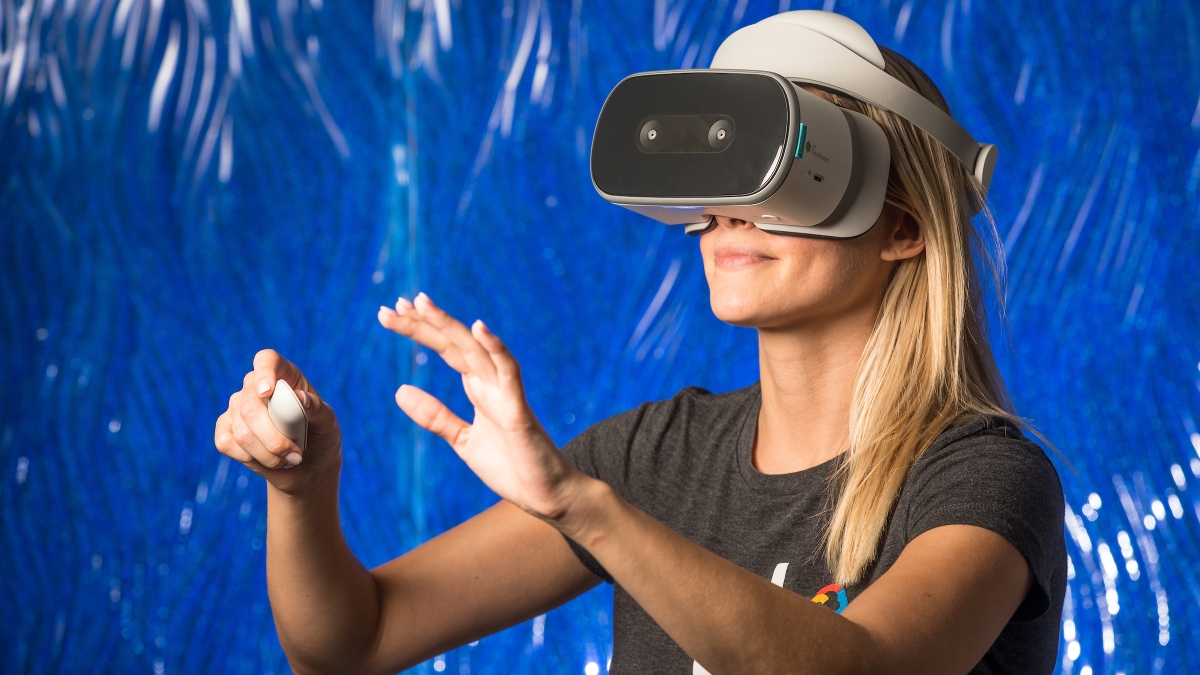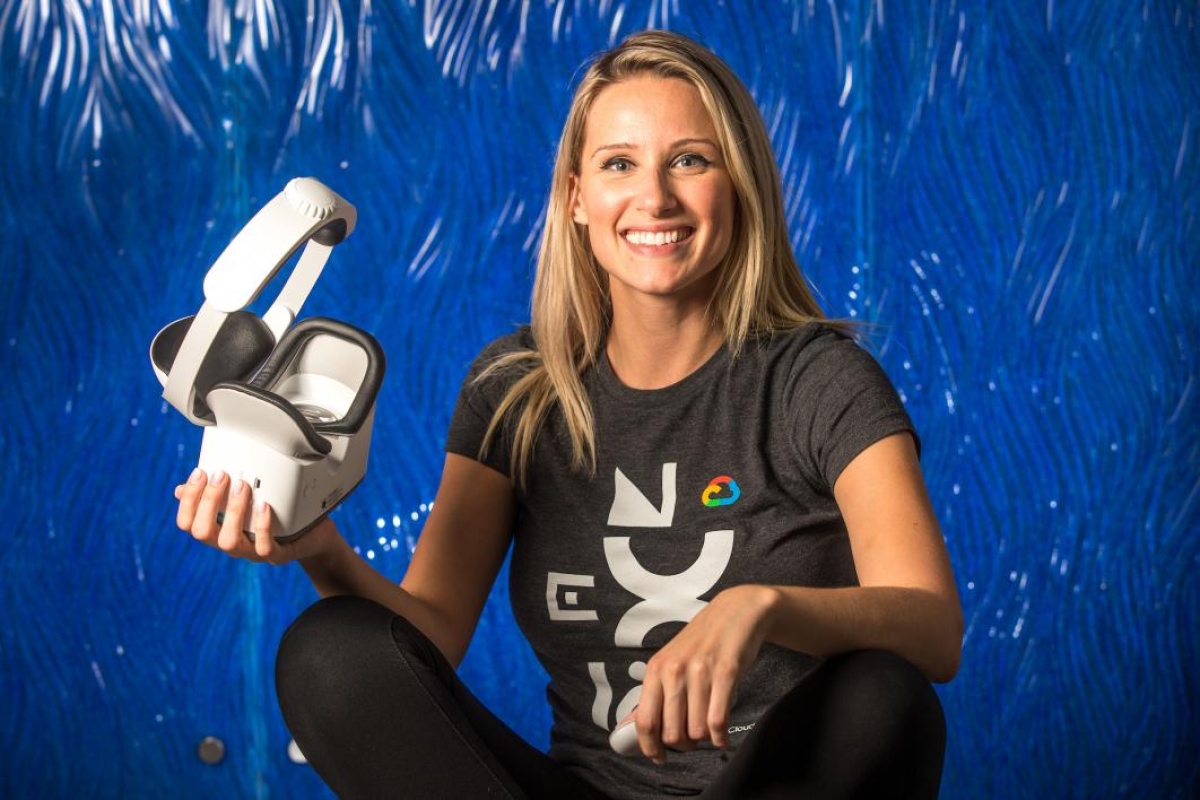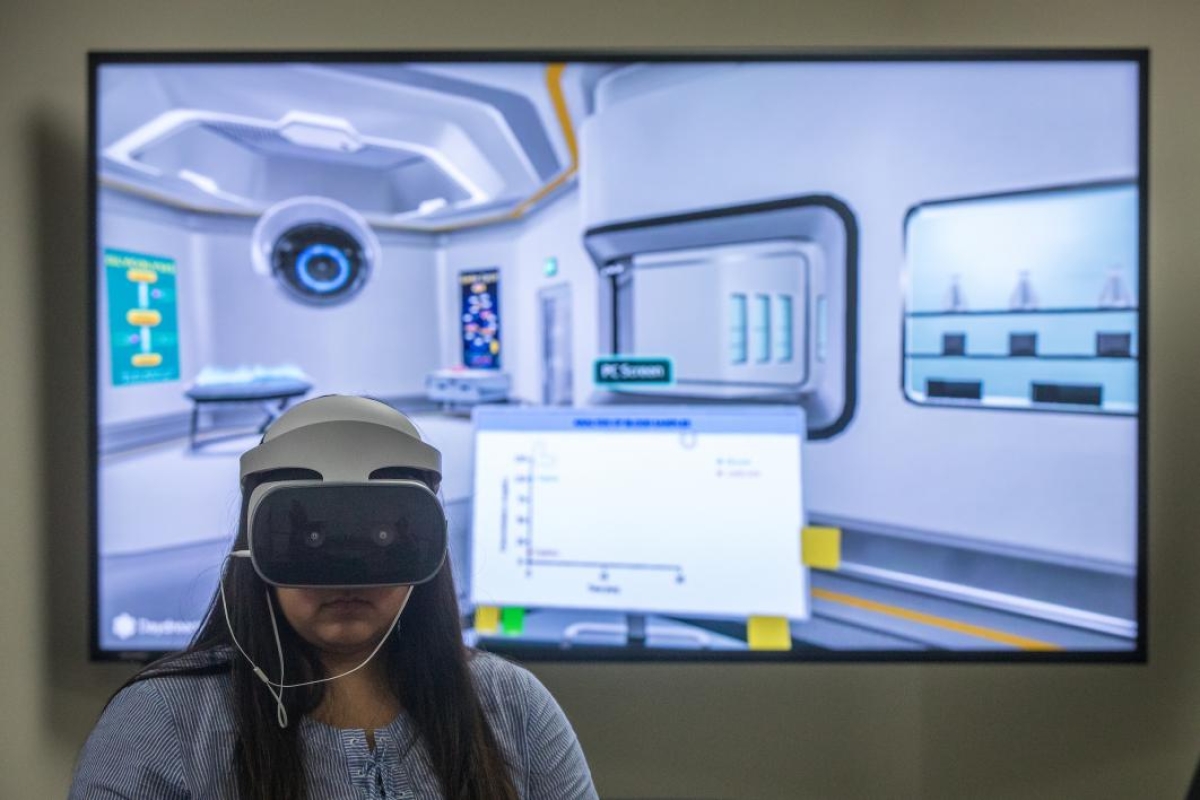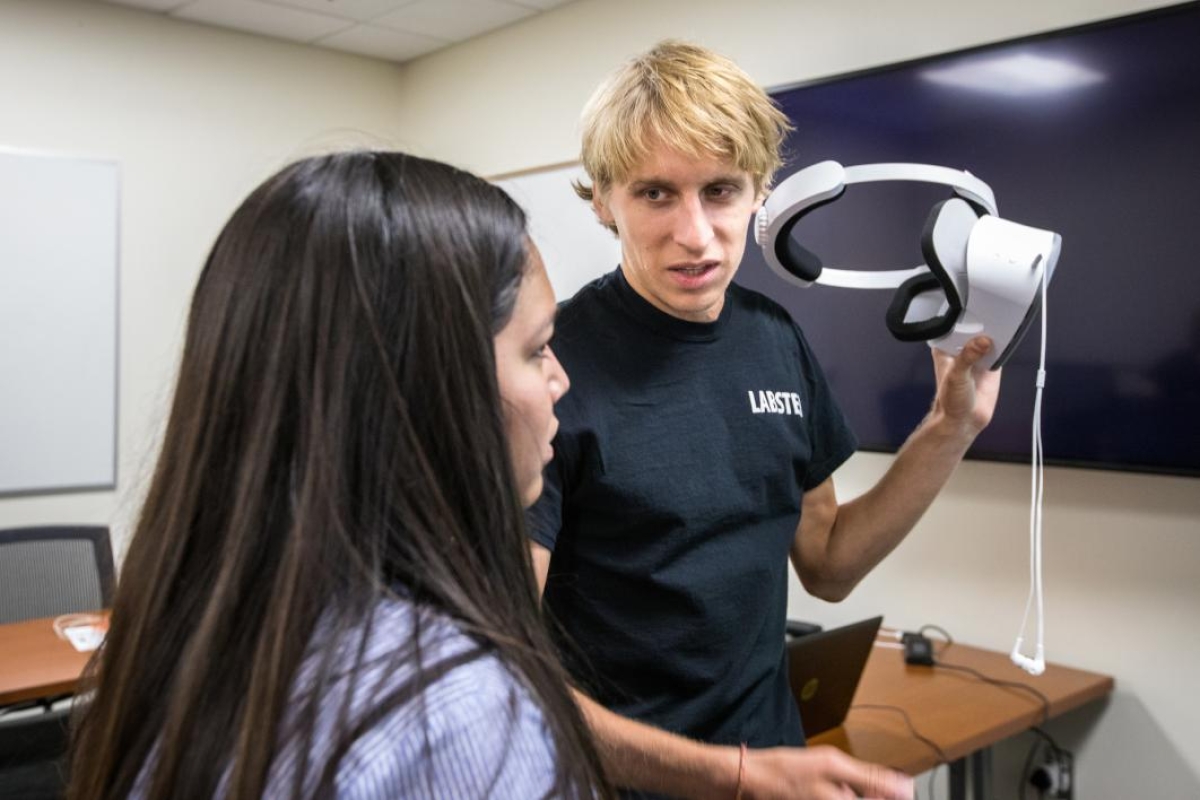ASU Online biology course is first to offer virtual-reality lab in Google partnership

Editor's note: This story is being highlighted in ASU Now's year in review. Read more top stories from 2018 here.
Students in general biology classes usually don’t get to take blood samples from people, but an online class at Arizona State University not only lets students draw blood, they also can manipulate DNA — all in virtual reality.
Thirty students in the general biology course under way now are using virtual-reality headsets to complete their lab requirement as part of a new partnership among ASU Online, Google and Labster. In total, 140 pairs of headsets will be available for students to borrow for the next round of classes starting in October.
The new technology can be a boon to students in both online and face-to-face classes, according to Amy Pate, manager of instructional design for the School of Life Sciences.
“We always talk about it in terms of the online classroom, but even some of the labs we do on campus have a limited number of seats or it only runs once a year,” she said. “The virtual side of things can get more people into the lab.”
Pate worked with a team from Labster earlier this summer to test out the technology and address any glitches in the different simulations.
“These are custom labs that are truly ASU content, developed by ASU biology professors and assessed to meet our standards,” said Pate, who added that the courses use some Labster content as well.
The new virtual-reality biology lab is among the many innovative ways that ASU incorporates technology. The College of Integrative Sciences and Arts has started using a three-dimensional visualization tool, the Anatomage Table — one of only three in the state — in the anatomy and physiology class at the Downtown Phoenix campus. Last year, engineering students moving into Tooker House received Amazon Echo Dot devices and became part of the first voice-enabled, learning-enhanced residential community on a university campus.
The 30 students in the online Biology 181 course who are borrowing the headsets, made by Lenovo, don't have to pay a rental fee. But students aren't required to borrow the headsets. They can buy their own or access the lab content on their laptops, as the other 370 students in Biology 181 are doing.
After donning the headsets and earbuds, students use a hand-held remote to maneuver 360 degrees in the animated lab, which is on a Google operating system called Daydream VR. The content is accessed through students’ Google accounts. Students click to open a locker and put on a lab coat and gloves before proceeding. The lessons contain scenarios with multiple-choice questions. The lab on cell respiration has students take blood samples from two basketball players and determine their blood glucose levels. Later the view is inside a glucose molecule and students are asked to put the molecules into the proper place to demonstrate the Krebs cycle.
The visualization indicates a student’s progress through the lab and includes encouragements like, “You’ve got this.” Unlike a lab classroom, students can spend as much time in the virtual lab as they need to.
The ASU Online course is the first in the country to offer the virtual-reality biology lab, according to a blog post today by Courtney Hampson, program manager for Google AR & VR. The Massachusetts Institute of Technology and the University of Texas will soon offer the labs, she said.
“Students will also be able to do some things in a virtual lab that wouldn’t be possible in the physical world, like viewing and manipulating DNA at the molecular level,” Hampson wrote in the post.
Penny Stone is taking the course as she earns her biology degree through ASU Online. The Tempe resident, who works as a cybersecurity research consultant, wants to pursue a career in the biotechnology field.
“My dad works in technology too, and he started in ASU Online for biology last semester and I said, ‘Man I should do that too.’"
Stone had used a VR headset before in a zombie-killing game but never for a class. She has done two of the labs so far.
“I did the first lab on my laptop, which takes you through a similar experience. It looks like your hands are in front of you holding a clipboard,” she said.
“But when you’re on the headset, it’s really immersive. I’m really looking around the lab and I don’t have my laptop open with all the other tabs, checking social media. I’m really in it.”
Stone said she can also access other virtual-reality content, such as by the BBC and YouTube, on the headset.
Victoria Quintana was one of the ASU students who tried out the headsets in the testing phase in June.
“Compared to hands-on, it’s not the same, but it’s still more interesting to see it rather than to just read about it in a book,” said Quintana, a senior majoring in biological sciences.
“The visuals were really good, especially when we got to the electronic transfer chain, and I like that it had a sense of humor.”
Top photo: ASU Online student Penny Stone works on a virtual-reality lab while wearing a Lenovo headset. She is one of 30 students in the first virtual-reality biology lab course this semester. Photo by Charlie Leight/ASU Now
More Science and technology

Turning up the light: Plants, semiconductors and fuel production
What can plants and semiconductors teach us about fuel production?ASU's Gary Moore hopes to find out.With the aim of learning how to create viable alternatives to fossil-based fuels, Moore — an…

ASU technical innovation enables more reliable and less expensive electricity
Growing demand for electricity is pushing the energy sector to innovate faster and deploy more resources to keep the lights on and costs low. Clean energy is being pursued with greater fervor,…

What do a spacecraft, a skeleton and an asteroid have in common? This ASU professor
NASA’s Lucy spacecraft will probe an asteroid as it flys by it on Sunday — one with a connection to the mission name.The asteroid is named Donaldjohanson, after Donald Johanson, who founded Arizona…




